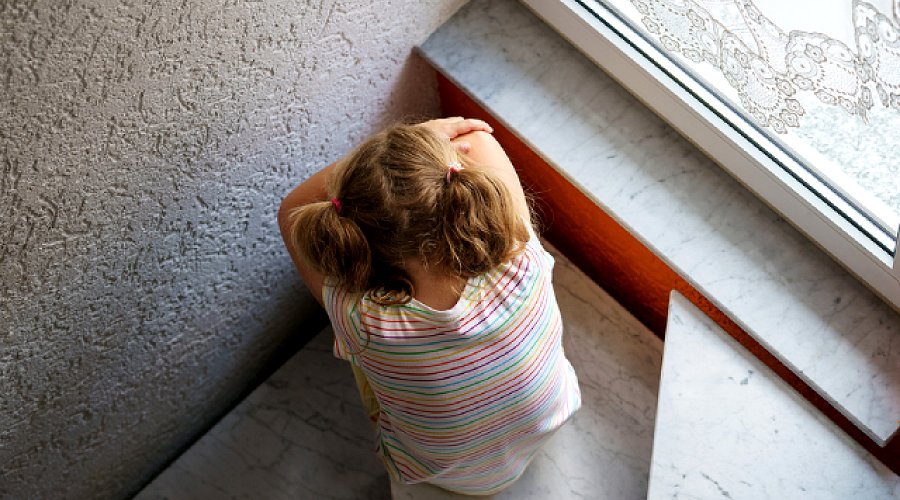The Long-term Effects of Childhood Trauma on Mental Health
Published on 11th April, 2024

Childhood is a time of innocence, exploration, and growth. However, for many individuals, childhood may also harbour experiences of trauma, which can profoundly impact mental health outcomes later in life. Childhood trauma encompasses a wide range of experiences, including physical, emotional, or sexual abuse, neglect, domestic violence, and other adverse childhood experiences (ACEs) (Anda et al., 2005).
These traumatic events can leave lasting imprints on an individual's psychological well-being, affecting various aspects of their mental health across the lifespan.
Understanding childhood trauma
Childhood trauma disrupts the normal developmental trajectory and can lead to a cascade of negative consequences that extend well into adulthood. The Adverse Childhood Experiences (ACEs) study, a groundbreaking research initiative conducted by the Centers for Disease Control and Prevention (CDC) and Kaiser Permanente, highlighted the prevalence and detrimental effects of childhood trauma. The study identified a strong association between ACEs and numerous health and social problems, including mental health disorders, substance abuse, and chronic diseases.
Impact on mental health
1. Developmental implications
Childhood trauma can alter the brain's architecture and functioning, particularly in areas responsible for emotional regulation, stress response, and cognitive processing (De Bellis & Zisk, 2014). Chronic exposure to stress hormones like cortisol can disrupt neural connectivity and contribute to heightened emotional reactivity, impulsivity, and difficulties in managing stress. These alterations in brain structure and function may increase the risk of developing mental health disorders such as depression, anxiety, and post-traumatic stress disorder (PTSD) later in life.
2. Psychological disorders
Individuals who experience childhood trauma are at an increased risk of developing a wide range of mental health disorders. Research demonstrates a significant association between childhood trauma and the development of mood disorders, with findings suggesting that early adversity may predispose individuals to conditions such as major depressive disorder and bipolar disorder (Quidé et al., 2020). Similarly, childhood trauma has been linked to the onset of anxiety disorders, including generalised anxiety disorder, panic disorder, and social anxiety disorder.
3. Complex trauma and dissociation
Some individuals who experience repeated or prolonged trauma during childhood may develop complex trauma symptoms, characterised by a range of persistent difficulties in emotional regulation, self-concept, and interpersonal relationships.
Complex trauma often co-occurs with dissociative symptoms, wherein individuals may disconnect from their thoughts, feelings, and memories as a coping mechanism to escape overwhelming distress (Cikanavicius, 2019).
4. Interpersonal challenges
Childhood trauma can profoundly influence interpersonal relationships, leading to difficulties in establishing and maintaining healthy connections with others. Individuals who have experienced trauma may struggle with trust issues, fear of abandonment, and difficulties in forming secure attachments.
These relational challenges can contribute to social isolation, feelings of alienation, and a heightened sense of vulnerability in interpersonal interactions. Moreover, childhood trauma may perpetuate cycles of violence and abuse within families, as individuals who have been victimised may replicate harmful behaviours in their own relationships and parenting practices.
5. Coping mechanisms and maladaptive behaviours
To cope with the distressing aftermath of childhood trauma, individuals may adopt various coping mechanisms, some of which may be maladaptive and detrimental to their mental health. Substance abuse, self-harm, and disordered eating behaviours are common coping strategies employed by survivors of childhood trauma to alleviate emotional pain and regulate overwhelming feelings. However, these coping mechanisms offer temporary relief at the cost of long-term negative consequences, exacerbating mental health symptoms and perpetuating cycles of self-destructive behaviour.
Resilience and recovery
Resilience and recovery are pivotal for overcoming childhood trauma, where individuals can exhibit remarkable strength. Supportive relationships and access to mental health resources are key components in this journey. Early intervention, including working with a child therapist in Singapore, and trauma-informed care can be beneficial in addressing the needs of trauma survivors. Additionally, fostering adaptive coping skills can greatly aid in promoting positive outcomes later in life. For adults, seeking adult counselling in Singapore can also be instrumental in navigating the effects of childhood trauma and facilitating healing and recovery processes.
Conclusion
Childhood trauma casts a long shadow over mental health, shaping the trajectory of individuals' lives in profound and complex ways. The lasting effects of childhood trauma on mental health thus highlight the importance of early intervention, trauma-informed care, and holistic approaches to promoting resilience and recovery. By fostering supportive environments and addressing the underlying wounds of trauma, we can empower survivors to heal, thrive, and reclaim agency over their mental well-being.
References
Anda, R. F., Felitti, V. J., Bremner, J. D., Walker, J. D., Whitfield, C., Perry, B. D., Dube, S. R., & Giles, W. H. (2006). The enduring effects of abuse and related adverse experiences in childhood. A convergence of evidence from neurobiology and epidemiology. European archives of psychiatry and clinical neuroscience, 256(3), 174–186. https://doi.org/10.1007/s00406-005-0624-4
Cikanavicius, D. (2019, March 10). How childhood trauma and dissociation result in horrible adulthood problems. Psych Central. https://psychcentral.com/blog/psychology-self/2019/03/trauma-dissociation-problems#1
De Bellis, M. D., & Zisk, A. (2014). The Biological Effects of Childhood Trauma. Child and Adolescent Psychiatric Clinics of North America, 23(2), 185–222. https://doi.org/10.1016/j.chc.2014.01.002
Quidé, Y., Tozzi, L., Corcoran, M., Cannon, D. M., & Dauvermann, M. R. (2020). The Impact of Childhood Trauma on Developing Bipolar Disorder: Current Understanding and Ensuring Continued Progress Neuropsychiatric Disease and Treatment, Volume 16, 3095–3115. https://doi.org/10.2147/ndt.s285540